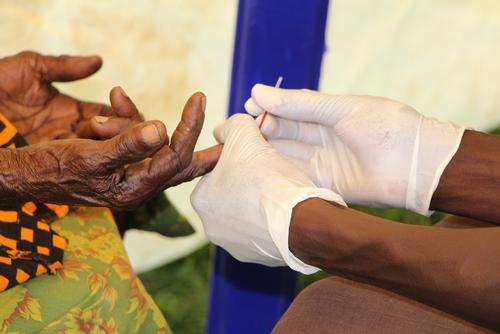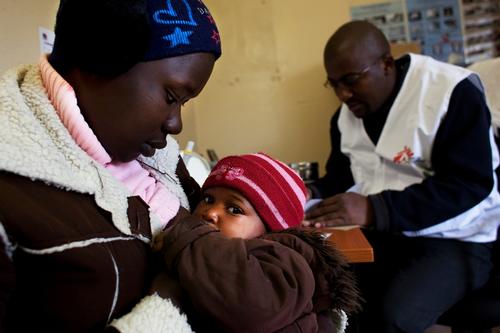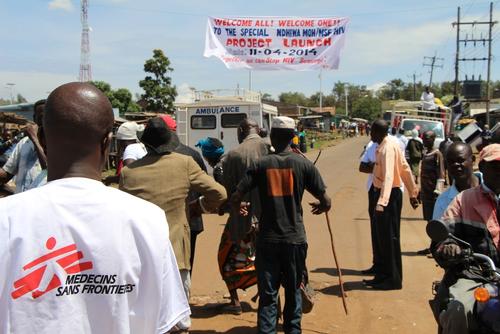A new MSF study shows that 50% of AIDS inpatients in Homa Bay hospital, Kenya, are failing their treatment. At a time when even more people are supposed to start ART, the study finds that patients need greater support during their life-long treatment. This includes appropriate counseling, early detection of treatment failures and improved hospital care.
Harare / Paris – A study by Médecins Sans Frontières (MSF) stresses the need for continuous support to HIV-positive people under antiretroviral therapy (ART), including at hospital level.
Among 690 patients (aged 13 and more) admitted in Homa Bay hospital, in western Kenya, between December 2014 and March 2015, the study finds that AIDS accounted for more than a third of admissions and 55% of deaths. Half these cases were patients failing their treatment, and showing new opportunistic infections despite having started ART.
MSF will present these results at the International Conference on AIDS and STIs (Sexually transmitted infections) in Africa (ICASA) taking place in Zimbabwe from 29 November to 4 December.
The study, which focuses on the inpatient population in a referral hospital during a given period of time, is consistent with MSF’s experience in other hospitals in sub-Saharan Africa. Significant rates of AIDS patients are found in wards, despite being diagnosed and started on ART at some point in their lives.
“At the start of MSF’s involvement in HIV/AIDS treatment in the 90s, teams in hospitals in developing countries faced an important number of clinically-ill HIV patients, mainly because they were diagnosed and treated too late, reminds Aline Niyibizi, the main investigator of the study. Today, people continue to die of AIDS in Africa’s hospitals. While some people were never diagnosed or treated, what we are now finding is a significant share of patients whose issues following ART went unnoticed.”
Several measures can prevent people from reaching a critical stage of treatment failure. These include appropriate counselling, from the moment people are diagnosed with HIV and at all steps of their life-long treatment; and access to routine viral load monitoring – the most effective tool to detect breaches in treatment. Treatments could also be made easier to follow for patients, by further developing decentralized HIV care in rural health facilities.
In Homa Bay’s Ndhiwa sub-county, MSF and local health authorities are putting these measures into practice, aiming to put the epidemic under control and reduce associated diseases and deaths. A study in 2017 will evaluate the outcomes of this program.
“The huge rise in access to ART should go hand-in-hand with more patient support, better early detection of treatment failures, and greater hospital care for those HIV patients who need it. Currently, those patients are being left behind. Diagnostic capacities and clinical care in African settings often fail to address AIDS cases, explains William Hennequin, MSF representative in Kenya. At a time when new WHO recommendations dramatically increase the number of patients eligible for ART, the capacity to follow and accompany people throughout the course of their treatment - including at hospital level - is a crucial stake”.
In 2002, Homa Bay was the first place in Kenya where ARVs were available for free in public health facilities. Today, despite consistent progress, Homa Bay County continues to be an HIV ‘hotspot’, with one out of four adults still HIV-positive. Furthermore, a study run in 2012 by MSF and Epicentre, its epidemiological branch, showed that two people out of 100 were newly infected with HIV every year in Ndhiwa sub-county.
Since June 2014, MSF and local health authorities run a pilot program in Ndhiwa, aiming at curbing the HIV epidemic and reducing morbidity and mortality linked to HIV/AIDS. The program focuses on reinforcing HIV prevention, detection, treatment and care at all levels, from communities to the Homa Bay county referral hospital.






